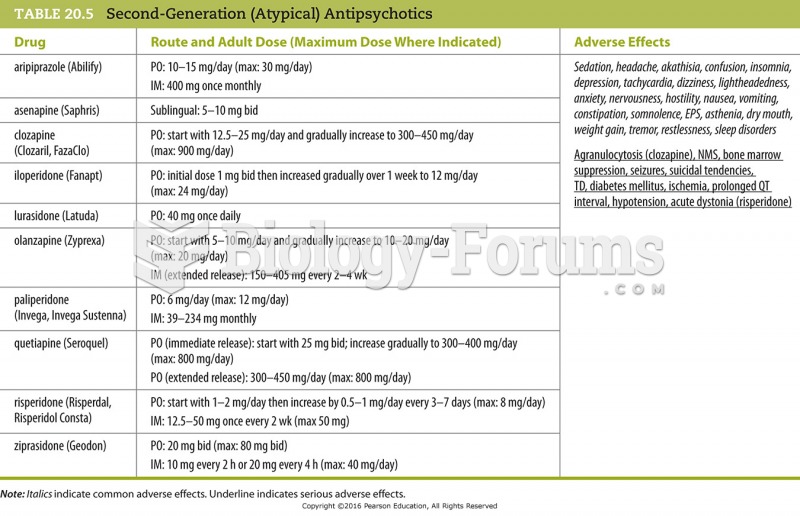This topic contains a solution. Click here to go to the answer
|
|
|
Did you know?
Signs of depression include feeling sad most of the time for 2 weeks or longer; loss of interest in things normally enjoyed; lack of energy; sleep and appetite disturbances; weight changes; feelings of hopelessness, helplessness, or worthlessness; an inability to make decisions; and thoughts of death and suicide.
Did you know?
The FDA recognizes 118 routes of administration.
Did you know?
Carbamazepine can interfere with the results of home pregnancy tests. If you are taking carbamazepine, do not try to test for pregnancy at home.
Did you know?
Signs and symptoms of a drug overdose include losing consciousness, fever or sweating, breathing problems, abnormal pulse, and changes in skin color.
Did you know?
Eat fiber! A diet high in fiber can help lower cholesterol levels by as much as 10%.
 Mononucleosis is caused by the Epstein–Barr virus. Symptoms of the infectious disease are swollen pa
Mononucleosis is caused by the Epstein–Barr virus. Symptoms of the infectious disease are swollen pa
 Cervical cancer (a) Top view of the uterus showing the presence of a tumor in the wall of the cervix
Cervical cancer (a) Top view of the uterus showing the presence of a tumor in the wall of the cervix
 Dental topography differs between A. Afarensis and H. erectus, suggesting the australopithecine teet
Dental topography differs between A. Afarensis and H. erectus, suggesting the australopithecine teet
 A Dorsal view of a scan of the hand phalange of a child from Denisova that yielded mtDNA that differ
A Dorsal view of a scan of the hand phalange of a child from Denisova that yielded mtDNA that differ



